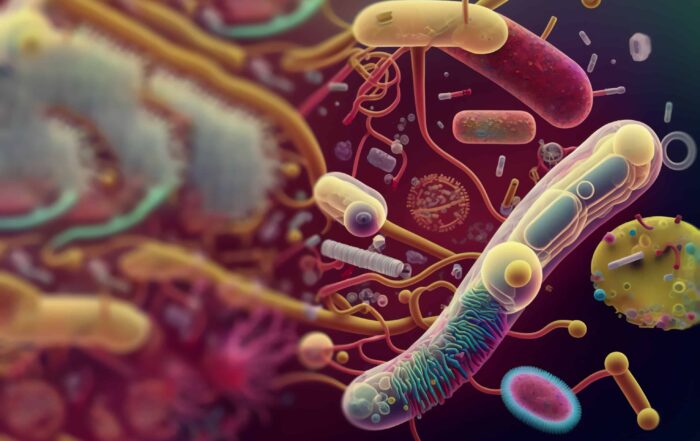Researchers in Japan report that they have identified a possible biomarker for autism spectrum disorders (ASD) in very young children.
Noting that both low birth weight and obesity in infancy are known risk factors for ASD, Motoko Maekawa and colleagues hypothesized that ASD may involve abnormal fat-cell metabolism. This led them to investigate levels of adipokines—molecules, some of which affect brain activity, that are secreted by fat cells—in individuals with ASD and neurotypical controls.

First, the researchers compared adipokine levels in blood samples from 123 children with ASD and 92 neurotypical controls. In addition to investigating adipokines already linked to ASD, they measured levels of another adipokine called FABP4. They focused on FABP4 because they had previously found abnormally low levels of this adipokine in the hair follicles of people with schizophrenia.
The researchers say that while levels of other adipokines did not differ between children with ASD and controls, levels of FABP4 were significantly lower in preschool-aged children in the ASD group than in agematched controls. Repeating the test with a separate group of preschool-aged children, they obtained the same results. Maekawa comments, “The identification of FABP4 as a biomarker that can detect ASD in four- to six year-old children is good news, especially because early diagnosis and intervention can lead to better long-term prognosis.”
Interestingly, when the researchers measured FABP4 in older children and in postmortem brain tissue samples, they saw no difference between people with and without ASD. This suggests, they say, that FABP4 abnormalities occur during a critical period of early brain development, and that low FABP4 may thus be a factor contributing to ASD rather than simply being a byproduct of the disorder.
Next, the researchers created mice lacking the FABP4 gene. Compared to control mice, these mice exhibited learning and social problems similar to those seen in individuals with ASD. The neurons in the brains of the mice also exhibited structural characteristics similar to those seen in the postmortem brain tissue samples from individuals with ASD.
Maekawa says, “We hope to replicate our findings in a larger group, which will allow us to determine whether specific ASD symptoms or their severity are related to low levels of FABP4. We also hope to conduct a prospective cohort study of newborns to determine if FABP4 levels at birth can predict the future manifestation of ASD.”
—
A potential role of fatty acid binding protein 4 in the pathophysiology of autism spectrum disorder,” Motoko Maekawa, Tetsuo Ohnishi, Manabu Toyoshima, Chie Shimamoto-Mitsuyama, Kei Hamazaki, Shabeesh Balan, Yuina Wada, Kayoko Esaki, Shu Takagai, Kenji J Tsuchiya, Kazuhiko Nakamura, Yasuhide Iwata, Takahiro Nara, Yoshimi Iwayama, Tomoko Toyota, Yayoi Nozaki, Hisako Ohba, Akiko Watanabe, Yasuko Hisano, Shigeru Matsuoka, Masatsugu Tsujii, Norio Mori, Hideo Matsuzaki, and Takeo Yoshikawa, Brain Communications, September 2020 (online). Address: Motoko Maekawa, Laboratory for Molecular Psychiatry, RIKEN Center for Brain Science, 2-1 Hirosawa, Wako-city, Saitama 351-0198, Japan, [email protected].
—and—
“FABP4: Preschool-aged biomarker discovered for autism spectrum disorder,” news release, RIKEN Center for Brain Science, September 10, 2020
This article origninally appeared in Autism Research Review International, Vol. 34, No. 4, 2020
Editorial – Fecal Microbiota Transplantation and Autism
Over the past several years, Fecal Microbiota Transplantation (FMT) has become the subject of growing interest in the autism community due, at least in part, to the increased awareness of the gut-brain
ARI’s Latest Accomplishments
Connecting investigators, professionals, parents, and autistic people worldwide is essential for effective advocacy. Throughout 2023, we continued our work offering focus on education while funding and support research on genetics, neurology, co-occurring medical
Biomarkers start telling us a story: Autism pathophysiology revisited
Antonio Persico, MD, a recent ARI Research Grant recipient, explores the role of biomarkers in understanding autism pathophysiology. He discusses the complexity inherent to neurodevelopmental conditions and emphasizes the need to combine




